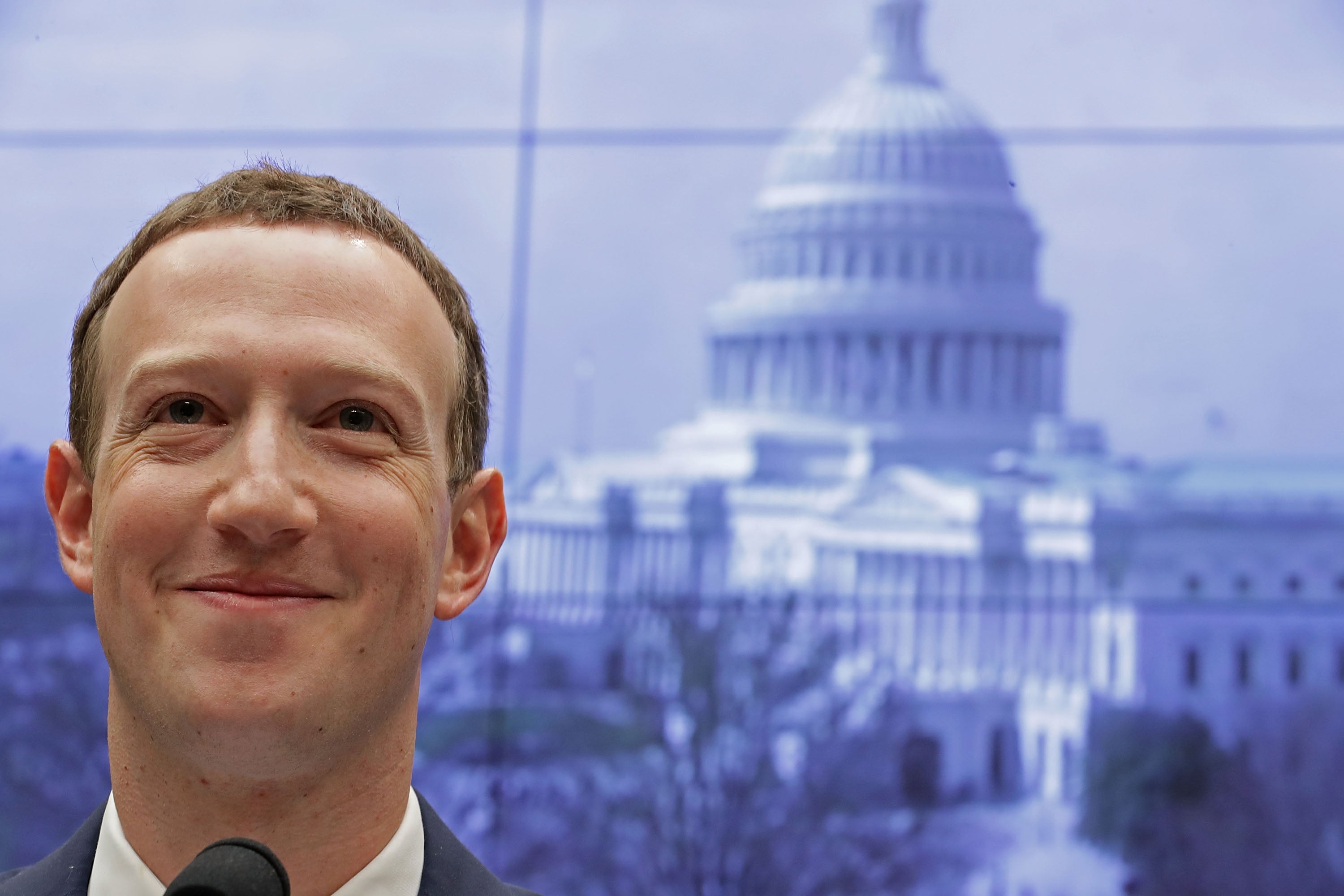The Independent's journalism is supported by our readers. When you purchase through links on our site, we may earn commission.
Facebook will ban adverts that claim US election victory before results are declared
The company has previously said it is preparing for violence after the November election

Your support helps us to tell the story
From reproductive rights to climate change to Big Tech, The Independent is on the ground when the story is developing. Whether it's investigating the financials of Elon Musk's pro-Trump PAC or producing our latest documentary, 'The A Word', which shines a light on the American women fighting for reproductive rights, we know how important it is to parse out the facts from the messaging.
At such a critical moment in US history, we need reporters on the ground. Your donation allows us to keep sending journalists to speak to both sides of the story.
The Independent is trusted by Americans across the entire political spectrum. And unlike many other quality news outlets, we choose not to lock Americans out of our reporting and analysis with paywalls. We believe quality journalism should be available to everyone, paid for by those who can afford it.
Your support makes all the difference.Facebook has said that it will be rejecting adverts which claim victory in the US election before the results have been declared.
It will also prohibit adverts that seek to delegitimise the outcome of an election.
“This would include calling a method of voting inherently fraudulent or corrupt, or using isolated incidents of voter fraud to delegitimize the result of an election," Facebook product manager Rob Leathern tweeted.
Types of adverts that Facebook would not allow include:
- Ads that portray voting or census participation as useless/meaningless and/or advise users not to vote or participate in a census
- Ads that delegitimize any lawful method or process of voting or voting tabulation, such as voting by mail or absentee voting
- Ads that delegitimize an election and/or result as fraudulent or corrupt because the result can't be determined on the final day of voting and/or before ballots received after the final day of voting are lawfully counted
- Ads that claim voter fraud is widespread
- Ads that claim the election date or the mechanism for electing the President can be changed in ways not permitted by the Constitution or federal law
- Ads with premature claims of election victory
- Ads that are inconsistent with health authorities on voting safely
“Facebook will be rejecting political ads that claim victory before the results of the 2020 election have been declared,” tweeted Facebook spokesperson Andy Stone.
That followed a previous announcement earlier in September from CEO Mark Zuckerberg about election security.
“If any candidate or campaign tries to declare victory before the results are in, we'll add a label to their post educating that official results are not yet in and directing people to the official results," Mr Zuckerberg wrote in a Facebook post.
Such announcements come at a politically trying time. President Donald Trump has repeatedly attacked mail-in voting as a form of casting a ballot, which are proving more popular due to the coronavirus pandemic.
“Mail ballots, they cheat,” Mr. Trump said in September. “Mail ballots are very dangerous for this country because of cheaters. They go collect them. They are fraudulent in many cases. They have to vote. They should have voter ID, by the way.”
The untrue statement, which Mr Trump has also tweeted about, had been flagged by Twitter in August as being misleading, but remained on the site “given its relevance to ongoing public conversation”.
Mr Trump had also amplified unfounded claims about widespread voter fraud, despite encouraging his supports to commit voter fraud.
Such claims were also flagged by Twitter for containing “potentially misleading information” when Mr Trump tweeted about them in May.
The rate of voter fraud in the entirety of the US is between 0.00004% and 0.0009%, according to a 2017 study by the Brennan Center for Justice.
Oregon has held postal elections since 2000, yet has reported only 14 fraudulent votes attempted by mail.
Facebook is also planning for violent unrest following the US election, as Mr Trump has said the election will be the “most inaccurate and fraudulent in history."
During an August campaign rally in Wisconsin, he told supporters: “The only way we’re going to lose this election is if the election is rigged.”



Join our commenting forum
Join thought-provoking conversations, follow other Independent readers and see their replies
Comments